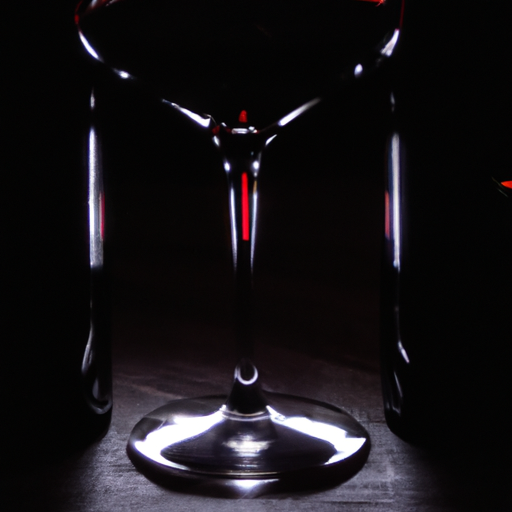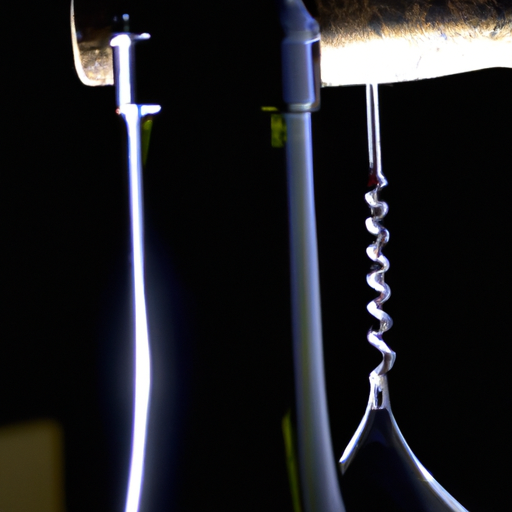
The Negative Effects of Chemical Additives in Wine Production
The production of wine has come a long way since its ancient origins. Today, winemakers have access to a wide range of technological advancements that have revolutionized the industry. However, while these advancements have undoubtedly improved efficiency and consistency, there is a dark side to wine technology that is often overlooked. One of the most concerning aspects is the use of chemical additives in wine production.
Chemical additives are substances that are added to wine during various stages of production to enhance its flavor, color, stability, and shelf life. While some additives are naturally occurring and harmless, others are synthetic and potentially harmful to human health. These additives can include everything from sulfur dioxide, which is used as a preservative, to artificial coloring agents and flavor enhancers.
One of the most commonly used chemical additives in wine production is sulfur dioxide (SO2). It is added to wine to prevent oxidation and microbial spoilage, ensuring that the wine remains stable and safe to consume. However, excessive use of sulfur dioxide can have negative effects on both the taste and health of the consumer. Some people are particularly sensitive to sulfur dioxide and may experience allergic reactions, such as headaches, breathing difficulties, and skin rashes.
Another concerning aspect of wine technology is the use of artificial coloring agents. These additives are used to enhance the color of the wine, making it more visually appealing to consumers. However, the use of artificial coloring agents raises ethical concerns, as it can be seen as misleading consumers about the true quality and origin of the wine. Additionally, some artificial coloring agents have been linked to health issues, including allergies and hyperactivity in children.
Flavor enhancers are another type of chemical additive commonly used in wine production. These additives are used to improve the taste and aroma of the wine, making it more palatable to consumers. However, the use of flavor enhancers can mask the natural flavors and characteristics of the wine, leading to a loss of authenticity and uniqueness. Furthermore, some flavor enhancers are derived from artificial sources, raising concerns about their safety and potential long-term health effects.
In addition to the negative effects on consumer health and the integrity of the wine, the use of chemical additives in wine production can also have detrimental effects on the environment. Many of these additives are derived from non-renewable resources and require energy-intensive processes to produce. Furthermore, the disposal of chemical waste from wine production can contribute to water pollution and soil degradation, harming ecosystems and biodiversity.
While there are regulations in place to control the use of chemical additives in wine production, there is still a lack of transparency and accountability in the industry. Consumers often have limited knowledge about the additives used in the wines they purchase, making it difficult for them to make informed choices. Additionally, the use of chemical additives can undermine the efforts of organic and biodynamic winemakers who strive to produce wines without the use of synthetic additives.
In conclusion, while wine technology has undoubtedly brought many benefits to the industry, there is a dark side that cannot be ignored. The use of chemical additives in wine production can have negative effects on consumer health, the environment, and the integrity of the wine itself. It is crucial for consumers to be aware of these issues and to support winemakers who prioritize natural and sustainable practices. By doing so, we can help preserve the true essence and quality of wine for future generations.
The Environmental Impact of Wine Technology

The wine industry has long been associated with tradition and craftsmanship. However, in recent years, technology has made its way into the winemaking process, bringing with it both benefits and drawbacks. While advancements in wine technology have undoubtedly improved efficiency and quality, there is a dark side to this progress that often goes unnoticed – the environmental impact.
One of the most significant environmental concerns associated with wine technology is the excessive use of water. Modern wineries rely heavily on water for various processes, such as irrigation, cleaning, and cooling. With the increasing demand for wine worldwide, the water consumption in the industry has skyrocketed. This has led to the depletion of water sources in many wine-producing regions, causing ecological imbalances and threatening the sustainability of local ecosystems.
Furthermore, the energy consumption of wine technology is another pressing issue. From the crushing and pressing of grapes to the fermentation and aging processes, winemaking requires a significant amount of energy. With the introduction of advanced machinery and automated systems, the energy demand has only increased. This reliance on energy from non-renewable sources contributes to greenhouse gas emissions and exacerbates climate change.
In addition to water and energy consumption, the use of chemicals in wine technology poses a threat to the environment. Pesticides, herbicides, and fungicides are commonly used in vineyards to protect the grapes from pests and diseases. While these chemicals may be necessary to ensure a successful harvest, they can have detrimental effects on the surrounding ecosystems. Runoff from vineyards can contaminate nearby water sources, harming aquatic life and disrupting the delicate balance of the ecosystem.
Moreover, the production and disposal of wine technology equipment also have environmental consequences. The manufacturing process of machinery and equipment often involves the extraction of raw materials and the release of harmful pollutants. Additionally, the disposal of outdated or broken equipment can contribute to electronic waste, which is a growing global problem. Proper recycling and disposal methods are crucial to mitigate the environmental impact of wine technology.
Despite these environmental concerns, it is important to acknowledge that wine technology has also brought about positive changes. For instance, the use of precision viticulture techniques has allowed winemakers to optimize grape production and reduce waste. By using sensors and data analysis, vineyards can monitor soil moisture, temperature, and nutrient levels, enabling them to make informed decisions and minimize resource usage.
Furthermore, advancements in winery design have led to the development of sustainable and energy-efficient facilities. From solar panels to rainwater harvesting systems, wineries are finding innovative ways to reduce their carbon footprint. Some wineries have even embraced organic and biodynamic farming practices, eliminating the need for synthetic chemicals and promoting biodiversity.
In conclusion, while wine technology has undoubtedly revolutionized the winemaking process, it is essential to recognize its environmental impact. Excessive water consumption, energy demand, chemical use, and equipment production and disposal all contribute to the ecological footprint of the wine industry. However, with the growing awareness of sustainability and the adoption of eco-friendly practices, winemakers have the opportunity to mitigate these negative effects and create a more environmentally conscious industry. By striking a balance between tradition and technology, the wine industry can continue to thrive while preserving the natural resources that make it possible.
Ethical Concerns Surrounding Wine Technology and Labor Practices
The wine industry has long been associated with tradition and craftsmanship. However, in recent years, advancements in technology have begun to reshape the way wine is produced. While these technological innovations have undoubtedly brought about many benefits, there is also a dark side to wine technology that raises ethical concerns.
One of the main ethical concerns surrounding wine technology is the impact it has on labor practices. Traditionally, wine production has been a labor-intensive process, with workers carefully tending to the vines and hand-picking the grapes. However, with the introduction of automated machinery, many of these tasks can now be performed by machines, reducing the need for human labor.
On the surface, this may seem like a positive development, as it can lead to increased efficiency and lower production costs. However, it also means that many vineyard workers are losing their jobs. These workers often come from marginalized communities and rely on the income from their vineyard jobs to support their families. The automation of wine production not only threatens their livelihoods but also exacerbates existing social inequalities.
Furthermore, the use of technology in wine production can also have negative environmental consequences. For example, the widespread use of pesticides and herbicides in conventional vineyards has been a cause for concern for many years. These chemicals can contaminate the soil and water, harming both the environment and human health. While organic and biodynamic farming practices have gained popularity in recent years, the use of technology in wine production can undermine these sustainable practices.
One such example is the use of drones in vineyards. Drones equipped with cameras and sensors can provide valuable data on vine health and help identify areas that require attention. However, they can also be used to spray pesticides and herbicides more precisely, leading to increased chemical use. This not only harms the environment but also raises questions about the long-term sustainability of wine production.
Another ethical concern surrounding wine technology is the potential for fraud and deception. Advances in technology have made it easier for unscrupulous individuals to produce counterfeit wines. With the ability to replicate labels, corks, and even the taste of a particular wine, consumers are at risk of purchasing fake products. This not only undermines the integrity of the wine industry but also puts consumers at risk.
In addition to fraud, technology can also be used to manipulate the taste and quality of wine. For example, the use of additives and flavor enhancers can alter the characteristics of a wine, making it taste more appealing to consumers. While this may lead to increased sales in the short term, it compromises the authenticity and uniqueness of the wine.
In conclusion, while wine technology has brought about many benefits, it also raises ethical concerns. The automation of wine production threatens the livelihoods of vineyard workers and exacerbates social inequalities. The use of technology can also have negative environmental consequences, undermining sustainable farming practices. Furthermore, technology opens the door to fraud and deception, compromising the integrity of the wine industry. As the wine industry continues to embrace technology, it is crucial to address these ethical concerns and ensure that the dark side of wine technology does not overshadow its potential benefits.






